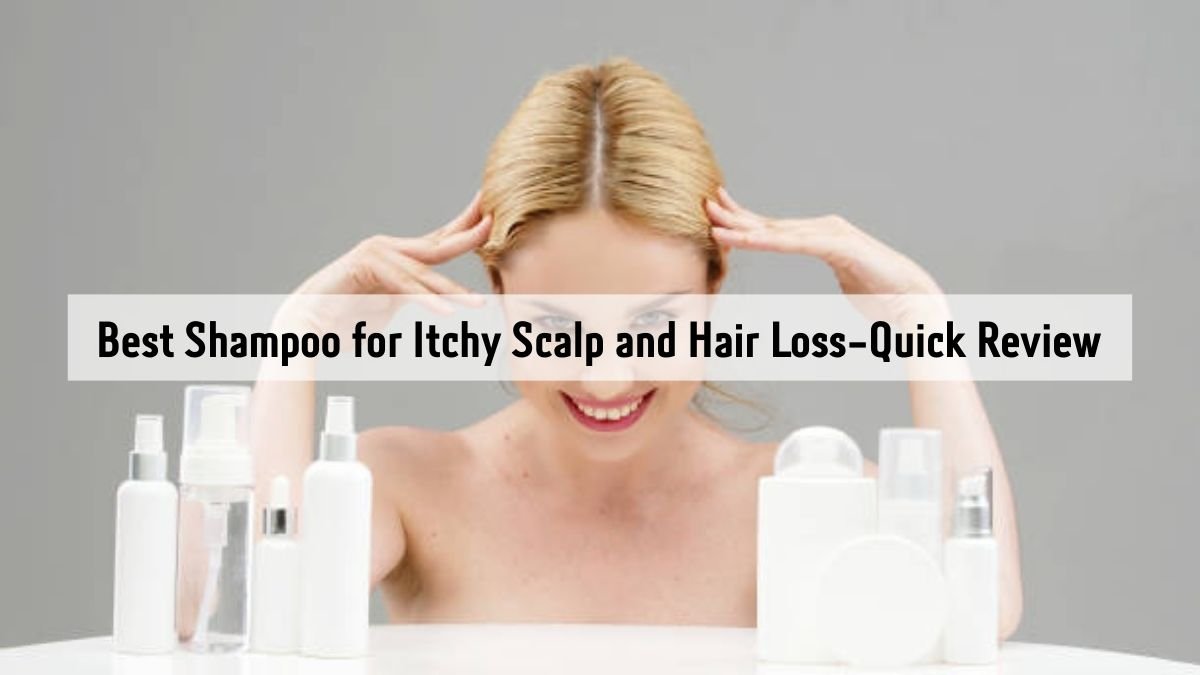
Finding the right shampoo is key to reducing itch and hair loss.
Do you struggle with an itchy scalp and hair loss at the same time? This dual concern is more common than you might think, affecting individuals across various demographics. An itchy scalp can lead to discomfort, distraction, and even anxiety, while hair loss can impact self-esteem and confidence. Many people find themselves caught in this frustrating cycle, unsure of how to address both issues effectively.
The connection between scalp health and hair loss is often overlooked. An unhealthy scalp can lead to inflammation, irritation, and ultimately a weakened hair follicle, contributing to hair loss. On the other hand, hair loss can exacerbate feelings of frustration and lead to increased scratching or picking at the scalp, which can worsen irritation. It’s a vicious cycle that many are eager to break.
Choosing the right shampoo is crucial in managing these conditions. A quality shampoo can soothe an itchy scalp, reduce inflammation, and promote a healthier environment for hair growth. Ingredients like tea tree oil, ketoconazole, and salicylic acid can help address scalp issues, while biotin, saw palmetto, and essential nutrients can support hair health and prevent further loss.
In this article, we will provide a quick review of the best shampoos designed specifically for both itchy scalp and hair loss. We’ll explore the key ingredients that make these shampoos effective and how they can help restore balance to your scalp while promoting fuller, healthier hair. Whether you’re dealing with dandruff, dryness, or more severe scalp conditions, there’s a solution out there for you.
We understand that finding the right product amidst countless options can feel overwhelming. That’s why we’ve curated a list of shampoos that have been well-received by users and dermatologists alike. Our goal is to help you make an informed decision, leading to relief from itching and a renewed sense of confidence in your hair.
Let’s delve into the details of these shampoos and discover how they can transform your hair care routine, providing the relief you need and helping you achieve a healthier scalp and hair. Your journey to comfort and confidence starts here!
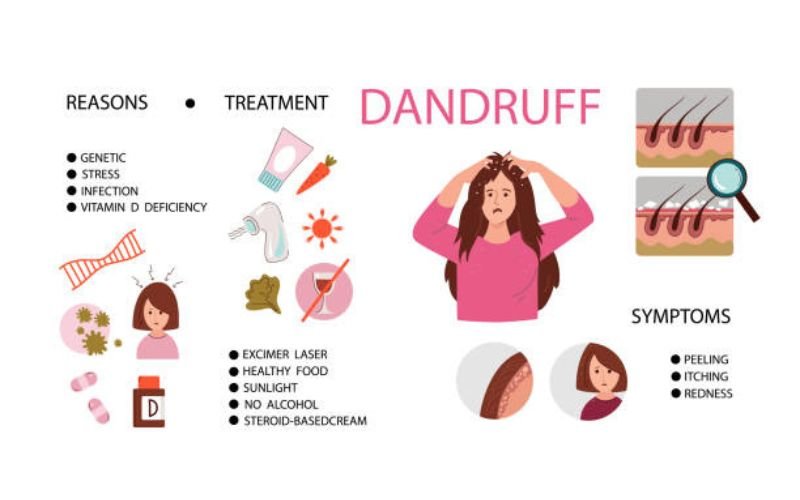
Why Itchy Scalp and Hair Loss Happen
Understanding the underlying causes of an itchy scalp and hair loss is crucial for effective treatment. These two issues often go hand-in-hand and can stem from a variety of factors, including common conditions, environmental influences, and lifestyle choices.
Common Causes
- Dandruff: One of the most prevalent causes of an itchy scalp, dandruff is characterized by flaking skin. It can result from a variety of factors, including dry skin, sensitivity to hair products, or the overgrowth of a yeast-like fungus called Malassezia. The irritation can lead to scratching, which may further damage hair follicles and contribute to hair loss.
- Dryness: A dry scalp can be triggered by environmental factors such as cold weather, low humidity, or excessive sun exposure. It can also arise from frequent washing or using harsh shampoos that strip natural oils. This lack of moisture can lead to itchiness and a compromised scalp environment, which may impact hair health.
- Fungal Infections: Conditions like seborrheic dermatitis or tinea capitis (ringworm of the scalp) can cause significant irritation and itching. These infections not only affect scalp comfort but can also weaken hair follicles, leading to temporary or even permanent hair loss if left untreated.
- Allergies: Allergic reactions to hair care products, such as shampoos, conditioners, or dyes, can cause scalp irritation and itching. Identifying and eliminating the allergen is essential for restoring scalp health and preventing hair loss.
- Stress: Emotional or physical stress can trigger a condition known as telogen effluvium, where hair follicles enter a resting phase prematurely, leading to increased shedding. Stress can also exacerbate existing scalp issues, creating a cycle of discomfort and hair loss.
The Role of Harsh Chemical Products and Environmental Factors
The products we use on our hair can greatly affect the health of our scalp. Shampoos and conditioners containing sulfates, parabens, or synthetic fragrances can irritate the scalp, leading to dryness and itching. Additionally, environmental factors such as pollution, chlorine from swimming pools, and hard water can contribute to scalp irritation and hair damage.
Inadequate hydration, poor nutrition, and lack of sun protection can also exacerbate these problems. A holistic approach that considers both external and internal factors is essential for achieving lasting relief.
Why Treating Only One Symptom Isn’t Enough
Addressing only one symptom—whether it’s scalp itchiness or hair loss—often leads to temporary fixes rather than long-term solutions. To effectively tackle these interconnected issues, scalp care must be comprehensive and targeted.
For example, while using an anti-dandruff shampoo may alleviate itching, it may not address hair thinning caused by inflammation or stress. Conversely, a product designed to promote hair growth may not provide relief for an itchy scalp, leaving the underlying causes unaddressed.
A synergistic approach that focuses on both scalp health and hair vitality is essential. This includes choosing products that not only relieve itchiness but also nourish and strengthen hair follicles. By treating both symptoms together, individuals can achieve healthier scalps and fuller, more resilient hair.
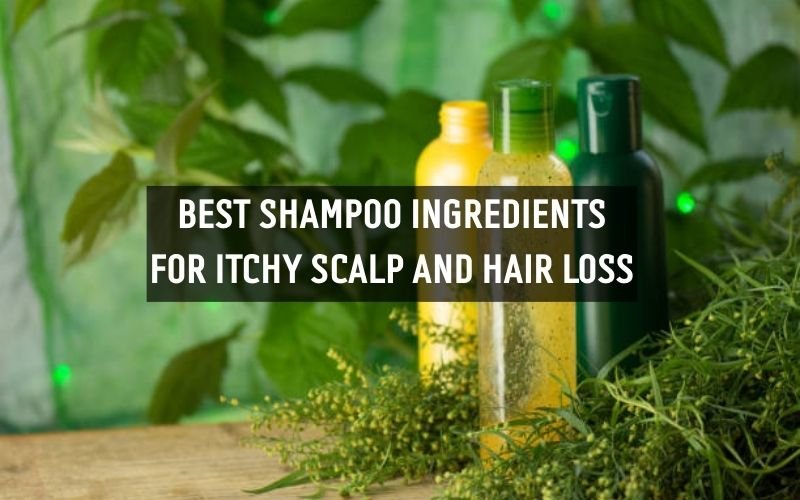
What to Look for in a Good Shampoo
When searching for a shampoo that effectively addresses both an itchy scalp and hair loss, it’s essential to consider specific ingredients and formulations. The right combination can provide relief from irritation while promoting healthier hair growth. Here are key ingredients to look for:
Key Ingredients to Consider
- Tea Tree Oil: Known for its antifungal and antibacterial properties, tea tree oil is a powerful ingredient for maintaining scalp health. It helps to soothe irritation and reduce inflammation, making it particularly effective for those suffering from dandruff or other fungal-related scalp issues. A shampoo containing tea tree oil can help clear up buildup on the scalp, promoting a healthier environment for hair follicles to thrive.
- Ketoconazole: This antifungal agent is widely recognized for its effectiveness in treating dandruff and various scalp infections. Ketoconazole works by inhibiting the growth of fungi, particularly Malassezia, which is often responsible for dandruff. Regular use of a ketoconazole-based shampoo can help minimize itching and flaking while also supporting overall scalp health, thereby reducing the risk of hair loss due to inflammation.
- Biotin & Caffeine: Both biotin and caffeine have gained popularity in hair care for their hair-strengthening properties. Biotin, a B-vitamin, is essential for keratin production, which is a key structural protein in hair. It helps strengthen hair and reduce thinning. Caffeine, on the other hand, stimulates blood circulation in the scalp, promoting nutrient delivery to hair follicles. Together, these ingredients can contribute to healthier, thicker hair while addressing underlying scalp issues.
- Sulfate-Free Formula: Sulfates are commonly used in shampoos for their foaming properties, but they can be harsh on the scalp and hair. A sulfate-free shampoo cleanses gently without stripping away natural oils, which is vital for maintaining scalp moisture and preventing irritation. This is especially important for those with sensitive skin or existing scalp conditions.
Why You Should Avoid Sulfates and Silicones
While selecting a shampoo, it’s also crucial to be aware of ingredients to avoid.
- Sulfates: As mentioned, sulfates can be overly drying and irritating, particularly for sensitive scalps. They can strip away the natural oils that protect and nourish the scalp, leading to increased dryness and itchiness. For individuals dealing with scalp issues, sulfates can exacerbate symptoms and hinder recovery.
- Silicones: Often found in many hair care products, silicones can create a temporary illusion of smoothness and shine. However, they can also build up on the scalp and hair over time, leading to clogged follicles and an unhealthy scalp environment. This buildup can exacerbate itching and irritation, counteracting efforts to improve scalp health.
-
Best Shampoos for Itchy Scalp and Hair Loss
When it comes to addressing both an itchy scalp and hair loss, choosing the right shampoo is essential. Here are some of the best options available, each with its unique benefits and drawbacks.

Nizoral with ketoconazole helps reduce dandruff and scalp irritation. a) Nizoral Anti-Dandruff Shampoo
Key Feature: Contains ketoconazole.
Overview: Nizoral is a powerful anti-dandruff shampoo that effectively treats severe dandruff and scalp itching due to its active ingredient, ketoconazole. This antifungal agent helps combat the underlying causes of dandruff and inflammation.
Pros:
- Highly Effective: Known for its efficacy in treating severe dandruff and reducing itching.
- Dermatologist Recommended: Widely trusted by dermatologists for its strong formulation.
- Long-lasting Relief: Many users report significant improvement after just a few uses.
Cons:
- Stripping: May be too harsh for some users, leading to dryness if used too frequently.
- Cost: Generally more expensive than standard anti-dandruff shampoos.
- Scent: Some users may find the scent less appealing compared to other shampoos.
-
b) Head & Shoulders Clinical Strength
Key Feature: Widely available and dermatologist-recommended.
Overview: Head & Shoulders Clinical Strength is designed to tackle stubborn dandruff and provide effective relief from itching and flaking. Its formula is gentle enough for regular use while still being powerful against dandruff.
Pros:
- Accessibility: Easily found in most drugstores and online.
- Effective: Reduces flakes and itchiness effectively for many users.
- Affordable: More budget-friendly than many medicated shampoos.
Cons:
- Ingredient Sensitivity: Some users may still experience irritation from certain ingredients.
- Build-Up: May cause buildup on the scalp over time if not alternated with a different shampoo.
- Limited Focus: Primarily focused on dandruff; may not be as effective for hair thinning.
-
c) PURA D’OR Original Gold Label Anti-Thinning Shampoo
Key Feature: Infused with biotin and natural extracts.
Overview: PURA D’OR is formulated with a variety of natural ingredients, including biotin, which supports hair strength and thickness. It’s designed for those dealing with thinning hair while also addressing scalp health.
Pros:
- Natural Ingredients: Contains a blend of natural extracts, making it a gentler option.
- Biotin Boost: Helps strengthen hair and reduce thinning effectively.
- Sulfate-Free: Gentle on the scalp and suitable for sensitive skin.
Cons:
- Price Point: More expensive than some traditional shampoos.
- Mixed Results: Some users may not see immediate results, as it often requires consistent use over time.
- Lather: May not lather as well as sulfate-containing shampoos, which some users prefer.
-
d) Neutrogena T/Gel Therapeutic Shampoo
Key Feature: Contains coal tar for long-lasting relief.
Overview: Neutrogena T/Gel is a therapeutic shampoo effective for treating scalp conditions like psoriasis and eczema, making it a great option for those with persistent itchy scalp issues.
Pros:
- Long-lasting Relief: Provides significant and lasting relief from itching and flaking.
- Dual Action: Effective against both dandruff and more severe scalp conditions.
- Clinically Tested: Backed by clinical studies demonstrating its effectiveness.
Cons:
- Strong Scent: The coal tar may have a strong smell that some users dislike.
- Staining: Can potentially stain light-colored hair or surfaces.
- Drying: May lead to dryness for some users, necessitating the use of a conditioner.
-
e) Paul Mitchell Tea Tree Special Shampoo
Key Feature: Refreshing formula with tea tree oil.
Overview: This shampoo is infused with tea tree oil, known for its soothing and antifungal properties. It provides an invigorating experience while addressing both itchiness and hair health.
Pros:
- Soothing Sensation: Provides instant relief from itchiness and irritation.
- Natural Ingredients: Contains tea tree oil, peppermint, and lavender for a refreshing cleanse.
- Easy to Find: Widely available in salons and online.
Cons:
- Price: More expensive than standard shampoos.
- Scent: The strong herbal scent may not appeal to everyone.
- Not for Severe Issues: May not be powerful enough for those with severe dandruff or scalp infections.
-
f) Biolage Scalpsync Anti-Dandruff Shampoo
Key Feature: Contains pyrithione zinc.
Overview: Biolage Scalpsync is designed to reduce dandruff while nourishing the scalp. It features pyrithione zinc, which is known for its antifungal properties.
Pros:
- Effective Formula: Reduces dandruff and soothes the scalp effectively.
- Color-Safe: Suitable for color-treated hair.
- Pleasant Scent: Users appreciate the light, refreshing fragrance.
Cons:
- Price: Higher cost compared to regular shampoos.
- Availability: May not be as readily available as drugstore brands.
- Build-Up: Some users report buildup if not used in conjunction with a clarifying shampoo.
-
g) OGX Extra Strength Refreshing Scalp Shampoo with Tea Tree and Mint
Key Feature: Combines tea tree oil with mint for a refreshing experience.
Overview: This shampoo offers a unique blend of tea tree oil and mint to refresh the scalp while helping to reduce itchiness. It’s a budget-friendly option with a focus on scalp health.
Pros:
- Affordable: Budget-friendly option that doesn’t compromise on quality.
- Invigorating: The minty formula provides a refreshing sensation during use.
- Hydrating: Contains ingredients that help maintain moisture in the scalp.
Cons:
-
- Milder Formula: May not be strong enough for severe dandruff issues.
- Sulfates: Contains sulfates, which may not be suitable for all users.
- Short-Term Relief: Some users find it provides only temporary relief.

Simple daily habits that support scalp health and hair growth. -
Extra Scalp Care Tips
Maintaining a healthy scalp is key to promoting hair growth and preventing issues such as itchiness and hair loss. Alongside choosing the right shampoo, incorporating effective scalp care practices can significantly enhance your hair health. Here are some essential tips to consider:
1. Wash Your Hair 2–3 Times Per Week
While it might be tempting to wash your hair daily, doing so can strip your scalp of its natural oils, leading to dryness and irritation. Washing 2–3 times a week allows your scalp to maintain its natural moisture balance while still effectively removing dirt, excess oil, and product buildup. If you feel the need to refresh your hair between washes, consider using a dry shampoo to absorb oil without the need for water.
2. Use Lukewarm Water Instead of Hot Water
Hot water can be harsh on the scalp, leading to dryness and irritation. Instead, opt for lukewarm water when washing your hair. This gentler temperature helps preserve the natural oils on your scalp while effectively cleansing without causing additional dryness. After washing, consider rinsing with cool water to help close hair cuticles and add shine to your hair.
3. Massage Your Scalp to Improve Circulation
Scalp massages are not only relaxing but also beneficial for hair health. Regularly massaging your scalp can stimulate blood circulation, promoting the delivery of essential nutrients to hair follicles. Improved circulation can enhance hair growth and strengthen existing strands. To incorporate scalp massages into your routine, use your fingertips to apply gentle pressure in circular motions while you wash your hair or as a standalone practice. You can even use nourishing oils, such as coconut or olive oil, to enhance the experience and provide additional moisture.
4. Maintain a Balanced Diet with Vitamins for Hair Health
What you eat plays a significant role in the health of your scalp and hair. A balanced diet rich in vitamins and minerals supports hair growth and overall scalp health. Key nutrients to include in your diet are:
- Biotin: Found in eggs, nuts, and whole grains, biotin is essential for keratin production, promoting strong and healthy hair.
- Vitamin E: This antioxidant helps improve circulation and reduce oxidative stress on the scalp. Include sources like spinach, avocados, and almonds in your meals.
- Zinc: Found in foods like legumes, seeds, and seafood, zinc supports hair tissue growth and repair.
- Omega-3 Fatty Acids: These healthy fats, found in fish, walnuts, and flaxseeds, help nourish the scalp and reduce inflammation.
5. Stay Hydrated
Hydration is essential for maintaining healthy skin, including the scalp. Drinking enough water throughout the day helps keep your scalp moisturized, reducing dryness and flakiness. Aim for at least eight glasses of water a day, and consider incorporating hydrating foods like cucumbers, oranges, and strawberries into your diet.
6. Limit Heat Styling and Chemical Treatments
Excessive heat styling and harsh chemical treatments can damage both your hair and scalp. Try to minimize the use of blow dryers, curling irons, and flat irons, or use them on lower heat settings. When using heat, always apply a heat protectant to shield your hair from damage. Similarly, limit chemical treatments such as dyes and relaxers, opting for gentler, more natural alternatives whenever possible.
7. Protect Your Scalp from Environmental Factors
Environmental factors like sun exposure, pollution, and harsh weather can take a toll on your scalp health. Wearing a wide-brimmed hat when outdoors can protect your scalp from UV rays and reduce irritation. Additionally, consider using a scarf or hair wrap in windy conditions to prevent dryness and damage.

Consistent shampoo use can transform scalp health over time. -
FAQs
Can shampoo completely stop hair loss?No, shampoo helps reduce hair loss caused by scalp issues, but it cannot stop genetic hair loss completely.How often should I use shampoo for itchy scalp and hair loss?times per week, unless directed otherwise by a dermatologist.Is medicated shampoo safe for daily use?Some (like tea tree shampoos) are safe daily, but medicated ones (like Nizoral) should be used twice weekly.Is sulfate-free shampoo better for thinning hair?Yes, it’s gentler on the scalp and reduces irritation that may worsen itching and shedding.When will I see results?Usually within 2–6 weeks of consistent use.Can I combine two shampoos?Yes, you can use a medicated shampoo twice a week and a gentle sulfate-free shampoo on other days.Can shampoo alone treat chronic hair loss?No, chronic or genetic hair loss often requires medical treatments (e.g., minoxidil) alongside scalp care.
Nutrition and self-care are essential parts of hair health. Conclusion
In summary, finding the right shampoo for your scalp and hair health is essential, as different formulations cater to various needs. Whether you’re dealing with dandruff, thinning hair, or scalp sensitivity, there is a product designed to target your specific concerns. For instance, shampoos with ketoconazole can effectively combat severe dandruff, while those infused with biotin and natural extracts are ideal for supporting thinning hair.
It’s important to choose a shampoo that aligns with your primary issue, as this targeted approach will yield the best results. Additionally, incorporating proper scalp care practices, such as washing less frequently and using lukewarm water, can further enhance your efforts in achieving a healthier scalp and fuller hair.
Remember, consistency is key. Regular use of the right shampoo, coupled with a balanced diet and good scalp care habits, will lead to noticeable improvements over time. Don’t hesitate to experiment with different products to find the one that works best for you, and consult with a dermatologist if you have persistent issues. Your journey to a healthier scalp and hair starts with informed choices and a commitment to your hair care routine!

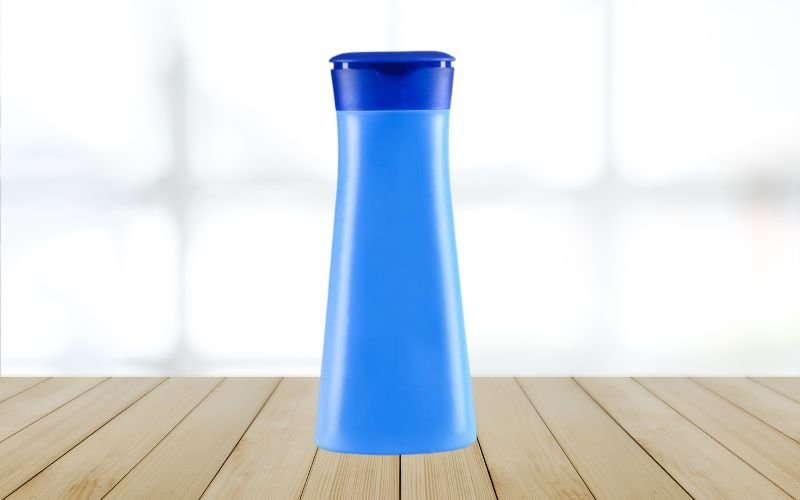
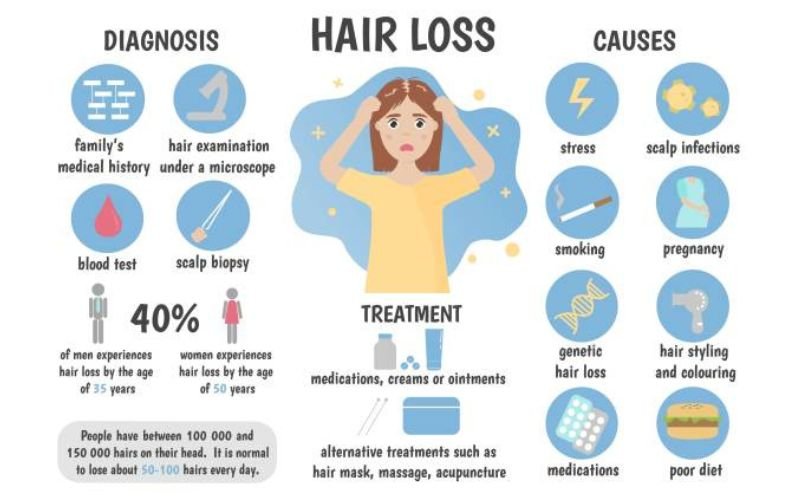
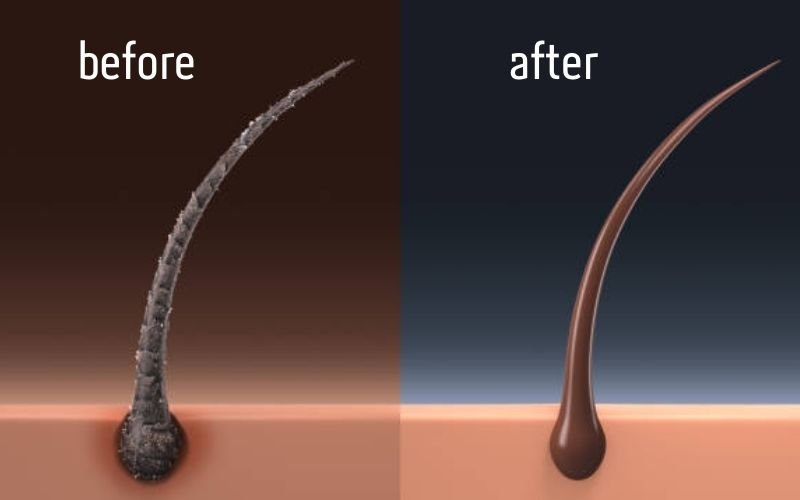

[…] What shampoo works best for itchy scalp and hair loss? […]
[…] natural ingredients that directly benefit hair follicles and scalp health. Unlike commercial shampoos or conditioners that may contain sulfates, parabens, or artificial fragrances, DIY masks provide […]
[…] thoroughly, apply conditioner or mask, and minimize heat styling. Use sulfate-free shampoos and deep conditioning treatments for shiny, strong […]